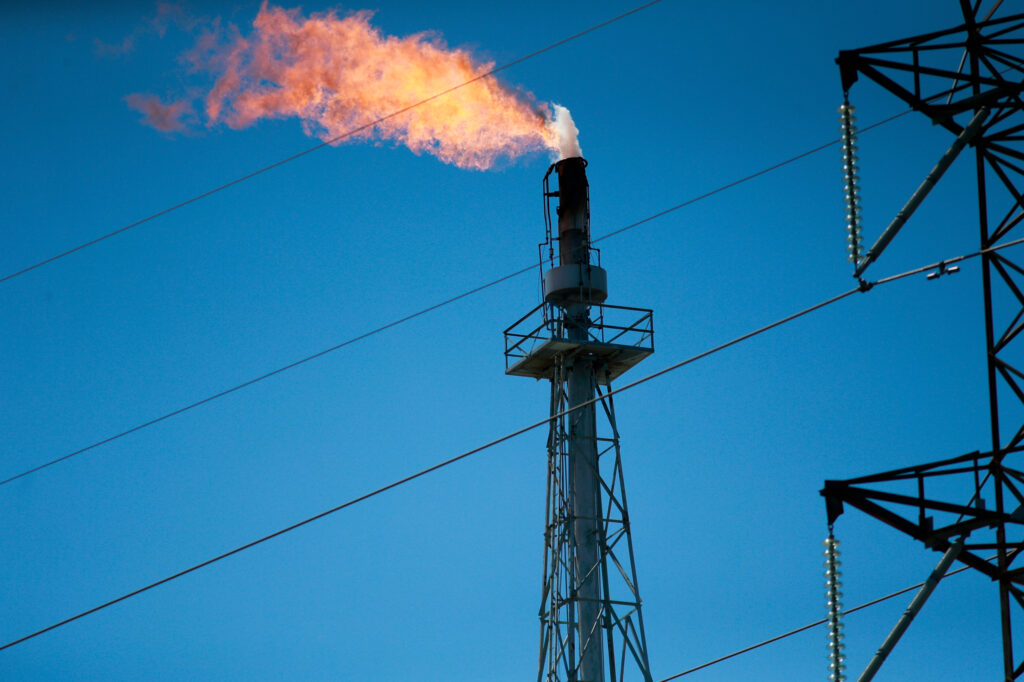Chris Wright, the fossil fuel executive newly confirmed as secretary of energy, introduced himself to senior staff last week with a speech that was fascinating for the way it acknowledged climate change and described the growth of U.S. natural gas production as close to a heroic act.
One thing that got my attention was his discussion of Germany’s decades-long shift away from fossil fuels and nuclear power, which he views as an epic blunder.
The German energy transition has so many facets that just about anybody can take a part of the story to support their argument about energy policy, so it’s telling to see which lessons someone chooses. Wright’s office did not respond to a request for comment.
He is joining the federal government after building Liberty Energy into one of the country’s leaders in hydraulic fracturing, or fracking, to produce oil and gas.
We’re hiring!
Please take a look at the new openings in our newsroom.
See jobs
In his speech, he touched on his views of climate change and his belief in the importance of increasing U.S. energy production. He is a skilled communicator, weaving his personal story of growing up in Colorado and taking an early interest in the science of energy with larger themes about the role of government.
“The energy dialogue, I would say, has been altered, I would say corrupted, because of climate change,” he said. “Climate change is a real thing. I’ve studied, spoken, written on it for 25 years. It is a very real thing.”
The corruption, he said, occurs when the idea of climate change is used “to pursue agendas that may or may not be at all related to what we actually know about climate change.”
He used this idea as a frame for his thoughts on Germany.
“German people are smart, enterprising and hard-working and wonderful, but they decided about 15 years ago that they were just going to change their energy system,” he said.
As he tells it, Germany has grossly overpaid for its shift to wind and solar and now is being crushed by high energy costs that have helped hollow out its industrial economy, while the visual landscape is marred by a glut of wind turbines.
“If your energy is expensive and it’s unreliable, everyone lives a little bit of a poorer life and it’s harder to manufacture things in your country,” he said. “So guess what happens? That manufacturing, it just moves somewhere else. Doesn’t go away, it’s just not built in Germany anymore. It’s built in Asia, United States, and loaded on a ship and shipped back to Germany.”
He went on to explain how this is relevant to his job.
“We don’t want to repeat that experiment in the United States,” he said. “The only way we’re really going to change our energy system is if we have energy sources that are affordable, that are reliable, that are secure, and that make people’s lives better. And we can do that.”
He listed several priorities for the agency, including an emphasis on increasing exports of liquified natural gas.
“The fastest growing energy source on the planet over the last 50 years, over the last 10 years, is natural gas,” he said. “The United States, 20 years ago, was the largest importer of natural gas on the planet. And in less than 20 years, today, we are the largest net exporter of natural gas on the planet. This is abundance.”
I contacted Benjamin Wehrmann, a staff correspondent for Clean Energy Wire, a Berlin-based nonprofit that reports on the energy transition in Europe, to ask what he made of Wright’s comments about Germany. (Clean Energy Wire’s data and reporting were vital resources for me when I wrote my 2020 series on Germany’s energy transition.)

He had one immediate fact-check, which is that Wright is incorrect to say that Germany has only embraced an energy transition in the past 15 years. It’s occurred over a much longer period. One of the landmark moments was the passage of a law in 2000 under Chancellor Gerhard Schröder that increased incentives for renewable energy projects.
Thanks to this law and several subsequent updates, Germany has gone from heavy reliance on fossil fuels such as coal to getting 58 percent of its electricity from renewable sources last year, which is more than double the share in the United States. But its successes have been undercut at times by higher energy bills for households.
Wehrmann also disagreed with Wright’s statement that wind turbines are everywhere in Germany.
“This is absolutely untrue, as there are many regions that still have little or no wind power production at all, especially in southern Germany,” he said. “While there’s a clustering and larger quantities in certain areas, particularly near the coasts and in rural parts of eastern Germany, the total land area planned to be designated for the use of wind power is 2 percent of the country’s area.”
He said Wright’s characterization of Germany’s alleged failures would not be recognizable to many leaders in the country’s business community. For example, he cited a September report from BDI, an industry trade group, that said the energy transition is an opportunity for Germany to remain an industrial leader.
Also, Germany’s grid is reliable, with an average disruption of 12.8 minutes per customer per year in 2023, which was in line with average for the previous decade.
Gernot Wagner, an economist at Columbia University, had two big problems with Wright’s speech. Wagner is a native of Austria and I spoke with him while he was getting on a plane to present at an energy conference in Berlin.
The first problem: Wright characterized the German government’s investment in its energy transition as a waste of money, which gives short shrift to the role governments have to play in putting money into the economy to support economic sectors that are important to the future.
The second problem: Wright criticized Germany for producing less electricity than it did 15 years ago, which misses the larger point that the country has become much more efficient in its use of energy. Efficiency is good.
“The German economy hasn’t been growing quite as fast as it should for all sorts of other reasons, but the fact that efficiency goes up … that means productivity went up, so the economy is now more productive, doing more with less inputs, and that is progress,” Wagner said.
Greg Nemet, a University of Wisconsin–Madison professor, told me that Wright is leaving out some important details that help to explain the ups and downs of Germany’s energy transition. Nemet has done research in Germany and written about the country’s role in helping to make solar power more affordable for the world.
He noted that Wright doesn’t mention one of the main reasons that energy prices have risen so much in Germany in recent years: the war between Russia and Ukraine.
Germany and others in the European Union have reduced or cut off purchases of natural gas from Russia as a way to show disapproval of Russia’s aggression. With less Russian gas, prices rose for gas from other sources, contributing to an increase in consumer bills in much of Europe.
This story is funded by readers like you.
Our nonprofit newsroom provides award-winning climate coverage free of charge and advertising. We rely on donations from readers like you to keep going. Please donate now to support our work.
Donate Now
Germany’s choice, made decades ago, to rely on Russian gas “has blown up in their face,” Nemet said.
But that’s not a justification for saying that Germany’s energy transition has failed, he said.
“There are real costs for the energy transition that are high costs—investing in transmission infrastructure, subsidizing renewables—but those are tiny compared to what [Germany has] paid for getting gas from Russia, and then, increasingly, from importing gas from the U.S. and Middle East,” he said.
He thinks that using Germany’s example to argue for reliance on fossil fuels in the United States will do much more harm than good.
“If you’re going to bet on fossil fuels, you’re going to bet on volatility, you’re going to bet on really high prices sometimes, and really low prices sometimes,” he said.
And this is before accounting for climate change and the immense costs the burning of fossil fuels have on the environment and human health that aren’t included in consumer prices.
I asked Nemet what he thinks Wright’s comments about Germany say about Wright’s worldview.
“I see someone who is completely convinced that fossil fuels, and especially natural gas, is the way forward,” he said.
Part of that, he said, is a desire for the United States to be scornful of policies that call for a rapid shift away from fossil fuels, which ignores the reasons that those policies are a necessity.
My view: Germany’s transition has advanced in fits and starts. Books could be written and have been written about the successes and failures. To focus on the failures and not the successes is pretty close to propaganda, and so is focusing on the successes and not the failures.
Germany was among the first large industrial economies to commit to an energy transition. It has given us lessons for how to do it, and how not to do it. I hope we in the United States are open to all of them.
Other stories about the energy transition to take note of this week:
Trump’s Funding Freeze Gets Rejected in Court, Again: A federal judge in Rhode Island found on Monday that the Trump administration was not following a previous court order to unfreeze funding for many federal grant programs, as Lindsay Whitehurst reports for the Associated Press. This continues a back-and-forth between the administration, which has paused funding almost across the board, and the courts, which have said the administration is exceeding its authority. The actions affect many programs that deal with renewable energy, energy efficiency and environmental justice and are stuck in a state of limbo while they seek assurance about funding that is in existing law.
Red States Have the Most to Lose From Trump’s Funding Freeze: The Trump administration’s freeze of federal money is hitting Republican-voting states especially hard, calling into question funding for new factories and other initiatives, as Lisa Friedman, Brad Plumer and Harry Stevens report for The New York Times. About 80 percent of manufacturing investments from the Inflation Reduction Act are going to Congressional districts represented by Republicans. Those lawmakers now will need to answer questions about potential layoffs and cancellations of factory investments.
Solar and Energy Storage Led Texas Capacity Additions by a Lot: It’s not surprising that solar and battery energy storage were the resources that grew the most last year in Texas, but the scale of that growth was impressive, as my colleague Arcelia Martin reports. The state also added a lot of natural gas power plants, but the total in megawatts trailed solar and storage. Solar and storage are relatively inexpensive and they work well in Texas’ local electricity market, in which power plants compete on price, as opposed to fully regulated markets that don’t have this level of competition.
Mayors Defend Renewable Energy Tax Credits Against Potential Repeal: A letter signed by mayors from across the country urges Congress to resist attempts to repeal tax credits that help state and local governments pay for renewable energy projects and programs, as my colleague Wyatt Myskow reports. The Biden administration legislation that provides the funding is under scrutiny as Congress looks to pay for other priorities.
Flexibility Can Go a Long Way to Help the Grid Handle Data Centers: A new report from Duke University calculates how existing resources in regional grids can handle much of the demand from proposed data centers if those data centers have the ability to ramp down at times of highest demand, as I wrote for ICN. The underlying concept is “demand response,” a system that works with power users to reduce demand at certain times. The use of demand response could help to avoid the need to build many new power plants to serve data centers.
Inside Clean Energy is ICN’s weekly bulletin of news and analysis about the energy transition. Send news tips and questions to [email protected].
About This Story
Perhaps you noticed: This story, like all the news we publish, is free to read. That’s because Inside Climate News is a 501c3 nonprofit organization. We do not charge a subscription fee, lock our news behind a paywall, or clutter our website with ads. We make our news on climate and the environment freely available to you and anyone who wants it.
That’s not all. We also share our news for free with scores of other media organizations around the country. Many of them can’t afford to do environmental journalism of their own. We’ve built bureaus from coast to coast to report local stories, collaborate with local newsrooms and co-publish articles so that this vital work is shared as widely as possible.
Two of us launched ICN in 2007. Six years later we earned a Pulitzer Prize for National Reporting, and now we run the oldest and largest dedicated climate newsroom in the nation. We tell the story in all its complexity. We hold polluters accountable. We expose environmental injustice. We debunk misinformation. We scrutinize solutions and inspire action.
Donations from readers like you fund every aspect of what we do. If you don’t already, will you support our ongoing work, our reporting on the biggest crisis facing our planet, and help us reach even more readers in more places?
Please take a moment to make a tax-deductible donation. Every one of them makes a difference.
Thank you,

















